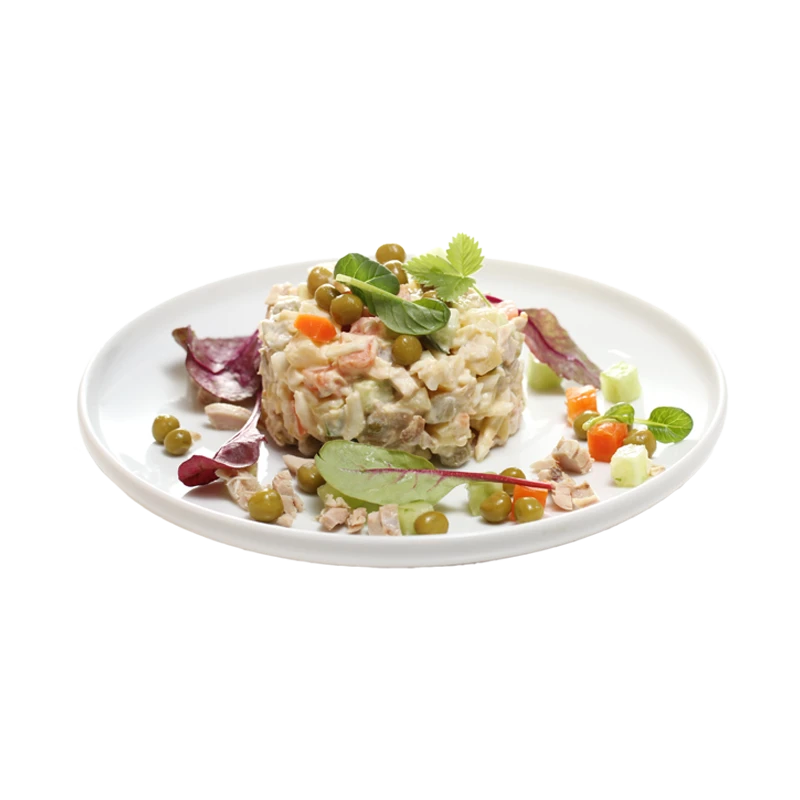Chicken Salad — Nutrients, Health Benefits, And Shopping Tips

Written by Listonic Team
Last update on September 4, 2024
Nutrients
Nutrition facts
Amount per 100 g
Calories
🔥 239 kcal
| Nutrition per: 100 g | Value | % Daily Value* |
|---|---|---|
| Carbs | 4 g | 1.45% |
| Fiber | 1 g | 3.57% |
| Sugars | 1 g | 2% |
| Glycemic Index | 0 | - |
| Protein | 20 g | 40% |
| Sodium | 170 mg | 7.39% |
| Total Fat | 15 g | 19.23% |
*The % of Daily Value (DV) tells you how much a nutrient in a serving of food contributes to a daily diet. 2,000 calories a day is used for general nutrition advice.
20 g
🧀 Good Protein Content
Key takeaways
Health benefits
- High in protein, essential for muscle growth, repair, and overall body function.
- Rich in vitamins and minerals from added vegetables, providing a variety of nutrients for overall health.
- Supports weight management by providing a high-protein, low-calorie meal option.
- Versatile and customizable, allowing for the inclusion of various healthy ingredients like leafy greens, nuts, and seeds.
Health risks
- High fat content particularly if made with mayonnaise or other high-fat dressings, which can contribute to increased cholesterol levels and heart disease risk.
- High sodium content in some store-bought or deli versions, which can contribute to hypertension and increased cardiovascular risks.
- Potential for foodborne illness especially if the salad is not properly stored, as chicken salad is prone to bacterial growth.
- Risk of overconsumption due to the perception of chicken salad as a healthy option, which can lead to excessive calorie intake if portion sizes or ingredients are not moderated.
How to choose chicken salad
A good chicken salad combines well-cooked, tender chicken pieces with a mix of crisp vegetables and a creamy dressing. Check that the chicken is moist and not overly shredded or dry.
Avoid chicken salad with dressing that appears separated or ingredients that look wilted. Quality chicken salad should have a fresh, vibrant appearance and taste as it looks, with each ingredient discernible.

How to store chicken salad
Chicken salad should be stored in the refrigerator in an airtight container. Use within three days to ensure it stays fresh and safe to eat. Keeping it cold helps maintain its flavor and texture.
Leaving chicken salad uncovered can lead to drying out and contamination. It’s best to avoid using metal containers, which can affect the taste. Ensure the container is tightly sealed to prevent absorption of other odors and maintain freshness.
✅ Extra Tip
How long does it last?
Chicken salad can last for 3-5 days in the refrigerator when stored in an airtight container. For the best quality, keep it properly sealed and at a consistent refrigerator temperature.
What to do with leftovers?
👨⚕️️ Medical disclaimer
Discover products from other categories
Listonic Team
Fact-checked
Our editorial team checked this article to make sure it was accurate at the time of publishing it.
Get the top-rated shopping list app

chicken salad
1 piece







